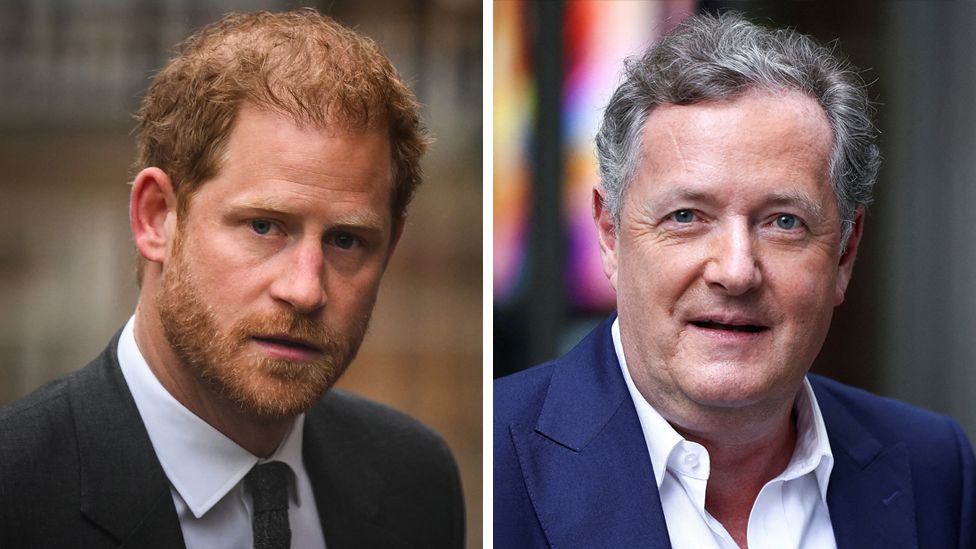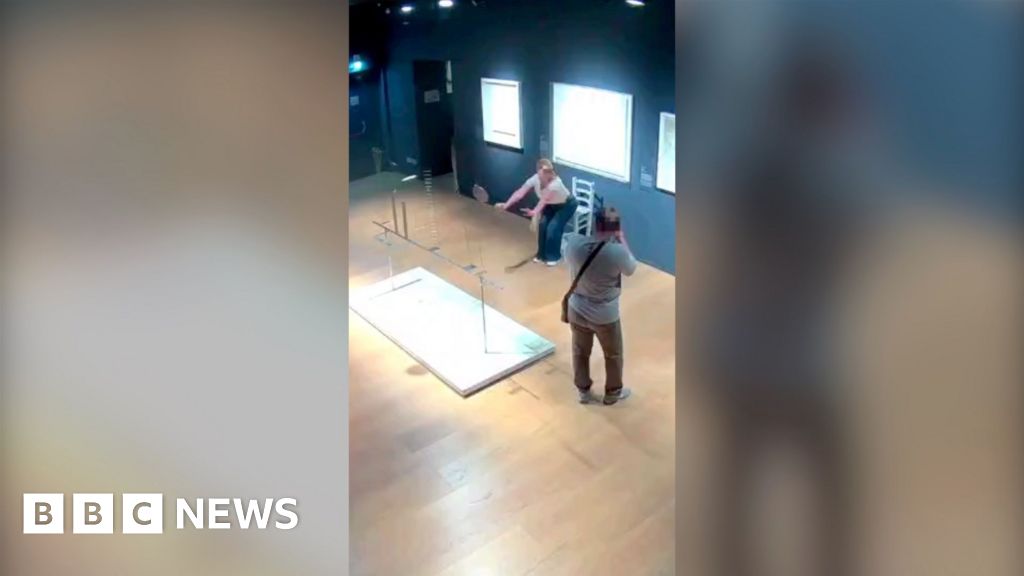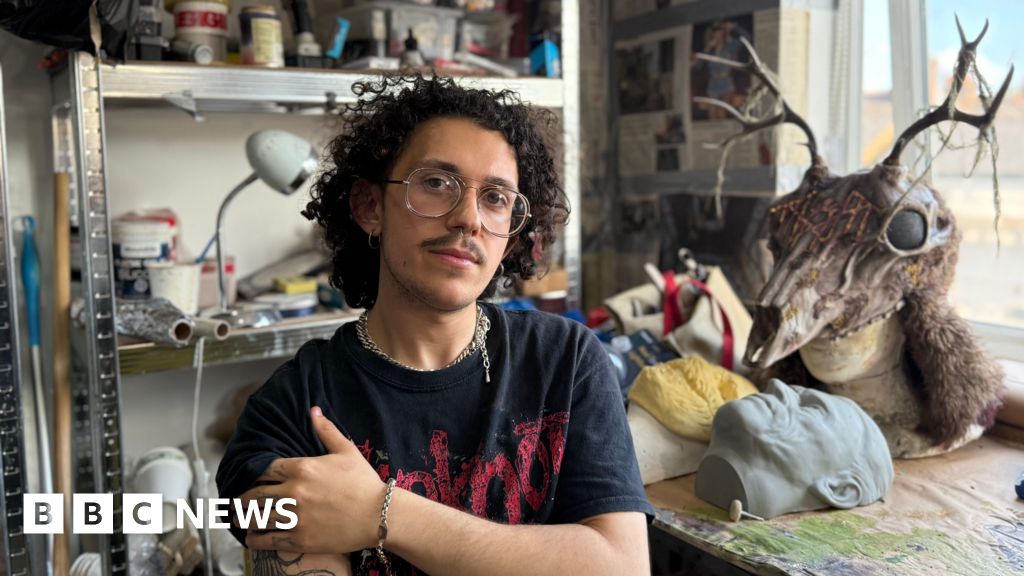ARTICLE AD BOX

The privacy trial brought by Prince Harry (left) and others did not hear from former Mirror boss Piers Morgan (right)
By Tom Symonds
Home affairs correspondent, BBC News
The seven-week trial into allegations of phone hacking by Mirror Group Newspapers journalists has come to an end. Is the evidence against the tabloid stacking up?
At times during the hacking court case it seemed as though we had travelled back in time, to the days before social media, when people got their news from pages of ink, printed on actual paper.
Back to the 1990s and 2000s, when stories about Prince Harry - barely out of school and falling for his first girlfriends - could fill newspapers day after day.
The tabloids were also fascinated by soap stars. Two Coronation Street actors were claimants in this trial. Michael Turner played mechanic Kevin, and Nikki Sanderson, hairdresser Candice.
The fourth claimant was Fiona Wightman, dragged into the red-tops by her marriage to Paul Whitehouse, whose TV comedy sketches on The Fast Show had catapulted him to fame in the 90s.
Actors Michael Turner, known by his stage name Michael Le Vell (left), and Nikki Sanderson (right) were also claimants
What became clear during the trial was Mirror journalists didn't just make up their stories as many critics of the tabloids might believe. They pursued accurate reporting of celebrity secrets as vigorously as another journalist might investigate a corrupt politician.
But their most precious commodity was sensitive personal information, some of it obtained illicitly from phone hacking. This is no longer disputed by the newspapers, because this trial was not the first.
'An unbreakable thread of evidence'
In 2015, the publisher of the Mirror, Sunday Mirror and People (now known as Reach PLC) admitted journalists used phone hacking and other unlawful methods during a previous landmark case, brought by another Coronation Street actor, Shobna Gulati and others.
The High Court judge, Mr Justice Mann, ruled that for seven years, from 1999, there had been "widespread, institutionalised and long-standing" phone hacking at the newspapers and editors knew - in particular, the editor of the Sunday Mirror, Tina Weaver. The publisher apologised.
Image source, AFP
Image caption,Tina Weaver, who led the Sunday Mirror for 11 years, gave evidence at the Leveson Inquiry into press ethics in 2012
In the latest trial, which concluded on Friday, the claimants were trying to expand the legal action to more potential victims, and prove the scandal reached the top of Mirror Group - to its board and its lawyers. If Mr Justice Fancourt finds they knew - and did nothing - the company could be hit with massive bills for compensation.
During this trial, the claimants attempted to make a new case against Piers Morgan, the television presenter who was Mirror editor between 1995 and 2004, who had emerged largely unscathed from the 2015 trial.
They brought together a series of incidents, which they said suggested he knew quite a lot about phone hacking and blagging - the reckless obtaining of personal information such as addresses, phone bills or bank statements - in the hope of creating an unbreakable thread of evidence.
There was the lunch where Mr Morgan urged a phone company executive to tell his customers they should change the PIN numbers on their mobiles, because journalists could listen to their voicemail messages.
There was the former intern who told the court he overheard a journalist reassuring Mr Morgan that a story about the singer Kylie Minogue was accurate because it had come from her voicemails.
A former Guardian journalist who said in a statement that Mr Morgan had explained to him most people didn't change the default access code for their voicemails, so they were easy to guess.
And the agent for TV presenter Ulrika Jonsson, who couldn't work out why Mr Morgan seemed to know so much about her client.
'Unnecessary distraction'
But neither side called Mr Morgan to the witness box to defend himself. In civil trials, witnesses only tend to be called if they can help one side or the other. The Mirror Group argued Mr Morgan's appearance would have been an "unnecessary distraction" from the issues the judge has to decide.
Remember, a key question was what executives knew. Piers Morgan was not on the board of Mirror Group Newspapers, the company said, and only attended two meetings over nine years.
But towards the end of the hearings, the judge put Mr Morgan at the top of a list of 29 journalists who hadn't come to court and perhaps "could and should" have given evidence.
After all, Mr Justice Fancourt pointed out, the former editor had been happy to talk about phone hacking outside court.
Watch: "I've never hacked a phone, I wouldn't even know how" - Piers Morgan (interview filmed in March 2023)
Mr Morgan recently told the BBC: "I never hacked a phone. I wouldn't even know how. I never told anybody to hack a phone."
He also insisted he didn't know phone hacking was going on, but also that he couldn't be sure stories hadn't been published which used unlawful methods.
But will the judge "draw an inference" that Mr Morgan not giving evidence suggests he was involved? He could decide he doesn't have to make any ruling at all about the former editor.
Private investigators
So what else did we learn? The trial lifted the lid on a network of private investigators, or PIs, who specialised in feeding personal information to the tabloids.
For the first time, a handful appeared in court. Ageing veterans of the information trade, sometimes scoffing at the questions they faced, sometimes confused by them.
Between 1996 and 2011 the Daily Mirror, Sunday Mirror and People spent at least £9m in payments to PIs. We heard that reporters on the Mirror papers regularly subcontracted the process of obtaining information to these PIs.
A reporter might get one to find an address and phone number from credit reference agencies, or from the Electoral Roll, potentially breaching data protection laws.
It was claimed journalists might use these details to hack a celebrity's phone themselves, or pass them onto another specialist investigator, who would in turn know the right "blagger" able to get more information.
There were people who would pose as bank customers to get financial records, or NHS staff to obtain someone's medical status. Some were experts at digging through credit records, others at digging through rubbish. Literally, the contents of celebrity bins.
The information would then be passed back up the chain, and presented to the reporter. The claimants argued this would allow the journalist to say it had been provided by "sources", and to deny knowing it had potentially been obtained unlawfully.
Quotes lifted from phone hacking would be written up as the words of anonymous "insiders" to disguise their source, the court heard.
Mirror Group's barrister, Andrew Green KC, accepted there were some investigators who broke the law - "rotters" as he called them several times. But most of the time they were using legitimate databases, he said.
Image source, PA Media
Image caption,The Duke of Sussex gave evidence in the hacking trial in June
The three alleged victims of "unlawful information gathering" were chosen as test cases. Prince Harry picked himself as the fourth by simply refusing to settle with the Mirror.
Their time in the witness box was mainly spent defending their cases against Mr Green. He tried to get them to accept that the stories the newspapers published about them must have come from publicly available sources, from friends, "insiders", other newspapers or even interviews they had willingly given.
He argued the four cases had been "wildly overstated" and, in the case of Prince Harry, it was "entirely speculative". Unlike the 2015 case, Mr Green added, there was very little evidence phones were hacked or that information was unlawfully obtained.
'Emotional damage'
Prince Harry's approach in the witness box was to suppress his anger and suggest it was for the journalists to explain how they got their stories about him.
Image source, Reuters
Image caption,Prince Harry's lawyer says newspaper coverage of his client and ex-girlfriend Chelsy Davy meant "they were never alone"
At the time, he didn't read all 33 articles in his case but said "every single article has caused me distress" - saying they tainted his relationship with friends he suspected might be leaking information.
The stories about him were so accurate he was "incredibly suspicious" they had been sourced illegitimately, especially by phone hacking. He was unable to say which voicemails had been accessed. It was all a very long time ago.
The emotional damage done by tabloid reporting became clear when Fiona Wightman entered the witness box.
In 2000, her split from comedian Paul Whitehouse and her cancer diagnosis were both of interest to the Mirror newspapers, which, it is alleged, tried to use a "blagger" to check her medical condition.
Sometimes in tears, she told the court: "I've had to discuss some of the most personal things I have had to go through. The most difficult times in my life."
Being involved in the case meant, she said, that "ironically it can now be reported. At the time I chose not to discuss any of it."
'Dark arts'
Don't expect a quick decision about these cases. It may be months before Mr Justice Fancourt gives a judgement and more than 100 potential claimants are waiting on his words.
It is now more than a decade since well-known people began to take on the newspapers they say have tormented their lives. Hundreds of victims have received damages in legal settlements and only MGN has been prepared to let the battle extend to a public trial.
But the case of Sussex v MGN is not going to be the last trial. Next year, actor Hugh Grant will take on the publisher of the Sun newspaper. Prince Harry may join him. Round two for the Duke.
And an even more aggressive legal battle is on the horizon.
Associated Newspapers, whose top selling title is the Daily Mail, is gearing up to fight off new allegations made by Elton John, Doreen Lawrence - mother of murdered Stephen - and, of course, Prince Harry. They include the use of phone-tapping and bugs.
The publisher has denied any involvement in what have become known as "the dark arts".

 1 year ago
36
1 year ago
36








 English (US) ·
English (US) ·